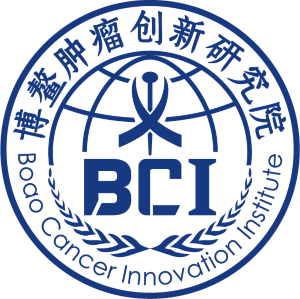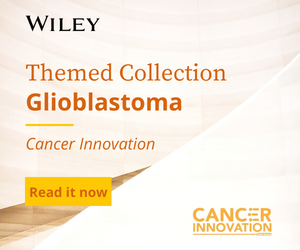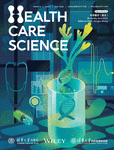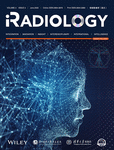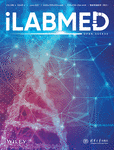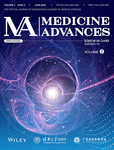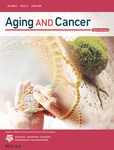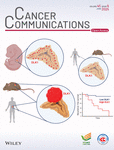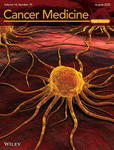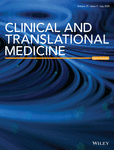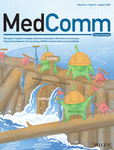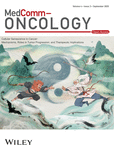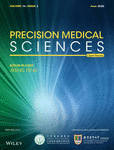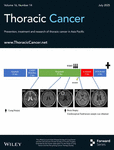Editorial Board
Honorary Editors-in-Chief
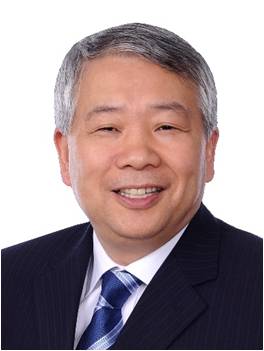
Jian Ding
Shanghai Institute of Materia Medica, Chinese Academy of Sciences, Shanghai, China
Jian Ding is a renowned Chinese cancer pharmacologist and Academician of the Chinese Academy of Engineering, and he has made extraordinary contributions to research and development of new drugs. Focusing on biomarkers and drug resistance mechanisms of anti-tumor drugs, he is the co-inventor of more than ten innovative drug candidates, and all of which are currently at clinical trials with two of them have already filed for listing and 5 of them running additional clinical tests in the US, Japan and Australia. More than 340 papers have been published in journals including Cellm, Cancer Cellm, Molecular Cancerm, Cell Ressearch etc., with a total citation over 8000 times. Over 300 patents have been authorized or filed for application. Multiple awards have been bestowed to him to acknowledge his tremendous contribution to the area of cancer treatment, including but not limited to, 2 Second degree of National Natural Science Award, the 2nd National Innovation Competition Medal, the Outstanding Science and Technology Achievement Award of the Chinese Academy of Sciences, etc.
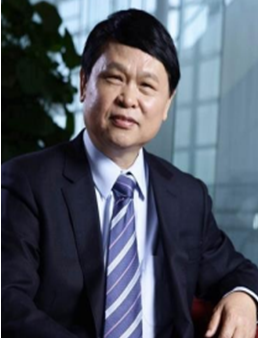
Binghe Xu
National Cancer Center/Cancer Hospital, Chinese Academy of Medical Sciences & Peking Union Medical College, Beijing, China
Binghe Xu is Academician of Chinese Academy of Engineering; Professor and Former Director of Department of Medical Oncology, National Cancer Center/Cancer Hospital, Chinese Academy of Medical Sciences & Peking Union Medical College; Director of National Clinical Research Center for New Anticancer Drugs. His major interests are basic and clinical research of solid tumors, especially breast cancer, as well as clinical trials of new anticancer agents. He has published 430 papers in peer-reviewed oncology journals, including Nature Medicinem, Lancet Oncologym, Annals of Oncologym, Journal of Clinical Oncologym, JAMA Oncologym, Cancel Cellm, Cancer Research, and Clinical Cancer Research. Of these published papers, more than 190 SCI papers he published as a first or corresponding author. He is the Seventh Director of Chinese Breast Cancer Society (CBCS), the Director of Chinese Society of Anti-Cancer Drug Clinical Study, the Chairman of Beijing Breast Disease Society. He is a faculty member of European School of Medical Oncology. He is also a panel member of the St Gallen International Consensus on the Primary Therapy of Early Breast Cancer, ESMO Clinical Practice Guideline on eBC and International Consensus Guidelines for Advanced Breast Cancer.
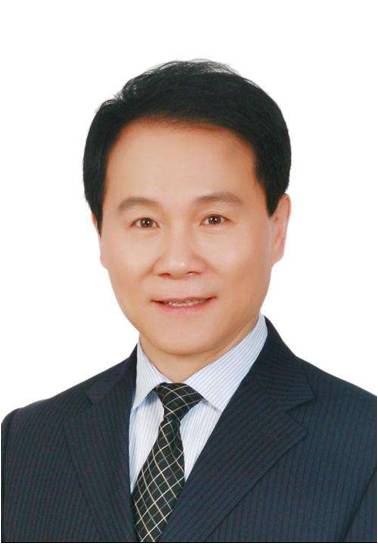
Qimin Zhan
Peking University International Cancer Institute, Beijing, China
Qimin Zhan, MD, is currently an Academician of the Chinese Academy of Engineering. He has edicated to the research of tumor molecular biology and tumor translational medicine for a long time, he is the first to discover and systematically reveal the function and mechanism of key proteins at cell cycle monitoring points in the world, and clarify multiple important cell cycle regulatory proteins in cell carcinogenesis and tumor diagnosis and individualization the role of treatment. In recent years, Dr. Zhan has systematically clarified the genetic variation and molecular characteristics of esophageal squamous cell carcinoma, providing a theoretical basis and clinical basis for the effective search for molecular markers and drug targets.
Editor-in-Chief
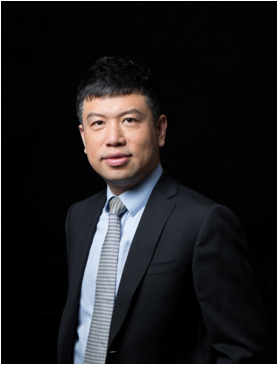
Fei Ma
National Cancer Center/Cancer Hospital, Chinese Academy of Medical Sciences and Peking Union Medical College, Beijing, China ![]()
Fei Ma is the chief physician & director of Internal Therapy Center of Cancer Hospital, principal investigator of State Key Laboratory of Molecular Oncology, Chinese Academy of Medical Sciences. He has long been dedicated to basic, clinical and translational research in oncology, focusing on interdisciplinary studies. In the past 5 years, he has published more than 50 peer-reviewed papers as first/corresponding author, especially in Lancet Oncologym, Journal of Clinical Oncology and Nature Communication. He also created a new model of "all-round and whole-cycle" management for breast cancer patients, published related guidelines, conducted clinical research on tumor cardiology & neurology, and promoted the development of tumor co-morbidity management and new interdisciplinary disciplines. He is also the founder of Chinese Cancer Innovation (CCI) consortium, the Asia Pacific leader of International Metronomic Chemotherapy Academy, chairman of Boao Cancer Innovation Institute, chairman of Biosimilar Collaborate Team (BCT) & Cancer Health Management Committee, Cancer Foundation of China and vice chairman in Committee of Cardio-Oncology, Chinese Anti-cancer Association (CACA).
Associate Editors
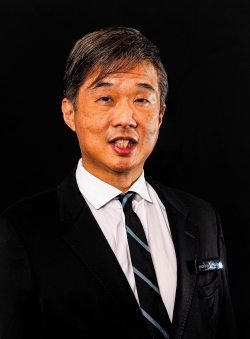
Toh Han Chong
Division of Medical Oncology, National Cancer Centre Singapore
Dr Toh Han Chong is Deputy CEO (Strategic Partnerships), National Cancer Centre Singapore and tenured Professor at the Duke NUS Medical School. Dr Toh obtained the International Baccalaureate diploma at the Lester B. Pearson College, Canada on a United World College Scholarship. He obtained his BSc (Intercalated) from the University of London in ‘Infection and Immunity’ and his medical degree from the University of Cambridge, UK. His oncology and research training were at the Singapore General Hospital, Massachusetts General Hospital, Harvard Medical School and at the Center for Cell and Gene Therapy, Baylor College of Medicine, Houston Texas, USA. Dr Toh is alumni of the Harvard Business School General Management Program. He is Principal Lead, Cellular Immunotherapy at the Singhealth Duke NUS Cell Therapy Centre.
Dr Toh is recipient of National Senior Clinician Scientist Award in 2017 and National Medical Excellence Award (NMEA) in 2018 for his pioneering work in cell and immunotherapy for cancer. He leads the NMRC Large Collaborative Grant VICTORY (Virus-Induced Cancers Translational Oncology and immunology) grant and is recipient of the NMRC STaR Award 2022 focusing on the translational understanding and therapeutic development for hepatocellular carcinoma.
Dr Toh is European Society for Medical Oncology (ESMO) faculty for Cancer Immunology and on the ESMO Scientific Committee 2024 and also co-lead of the ESMO Asia Immunotherapy Education section which he will chair. He is also on the Scientific Organising Committee for APPLE – Asia-Pacific Primary Liver Cancer Expert Meeting 2024. He is co-founder of the Asia-Pacific Gastrointestinal Cancer Summit (APGCS).
Dr Toh has published over 150 peer-reviewed journal papers, including in Nature Medicine, Nature Reviews Clinical Oncology, Nature Genetics, Nature Communications, The Lancet, Lancet Oncology, The New England Journal of Medicine, Annals of Oncology, Journal of Clinical Oncology, Journal of Clinical Investigation, Molecular Therapy, etc.
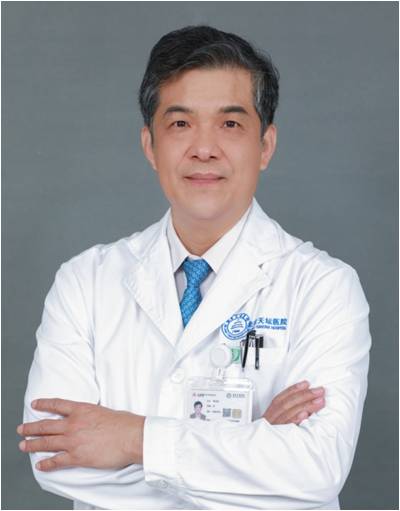
Wenbin Li
Cancer Center, Beijing Tiantan Hospital, Capital Medical University, Beijing, China
Wenbin Li is the Director of Cancer Center and Neuro-Oncology Department, Beijing Tiantan Hospital; Director of Department of Oncology, Capital Medical University (CMU); Vice Chairman of Drug Clinical Research Specialty Committee, President of FCN-159-002 SMC; Committee member, Asian Oncology Society (AOS) Academic Committee; Standing Committee Member and General Secretary of Glioma Specialty Committee, Chinese Medical Doctor Association (CMDA); Director of Department of Journal Publishing, Chinese Anti-Cancer Association (CACA); Chief Editor of Committee of neuro-oncology channel, Chinese medical reference newspaper. He is also Honorary Research Fellow at University of South Florida; Foreign Academician of the Royal Society of Medicine. He is very skilled at chemotherapy of intracranial malignant tumors and studies on the drug clinical trials. He is in charge of two novel drugs in phase I clinical trial, which belong to National Science and Technology Major Project for “Significant New Drugs Development” during the 13th Five-year Plan period, and the project has completed 20 phase I-IV clinical trials.
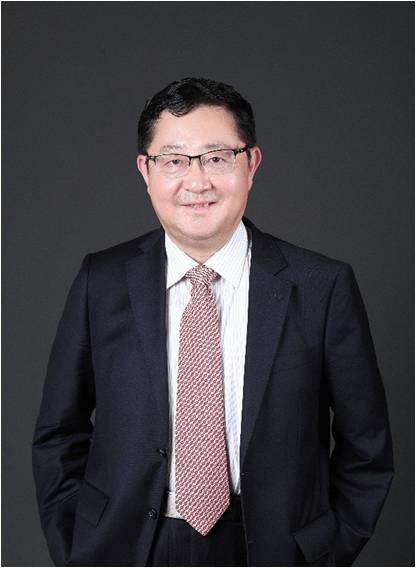
Shun Lu
Shanghai Lung Cancer Center, Shanghai Chest Hospital, Shanghai Jiaotong University, Shanghai, China ![]()
Shun Lu served as the leading PI for more than 20 multi-center Phase III oncology clinical trials and participated as the key contributor for more than 50 global and regional clinical trials as well. He has authored more than 200 peer-reviewed articles, many of which has published at JCOm, Lancet Respiratory Medicinem, Annuals of Oncologym, Clinical Cancer Researchm, Chest and JTO etc. Prof. Lu is the advisory board member for Center for Drug Evaluation at NMPA. He is also the chair of Chinese Lung Cancer Association and executive director of CSCO.
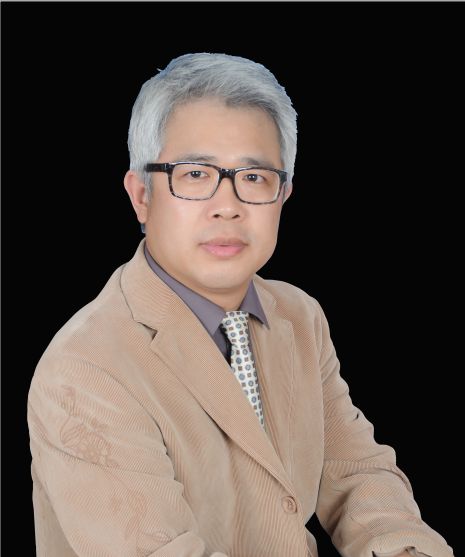
Haili Qian
National Cancer Center/National Clinical Research Center for Cancer/Cancer Hospital, Chinese Academy of Medical Sciences and Peking Union Medical College, Beijing, China ![]()
Haili Qian received his Ph.D. degree from Chinese Academy of Medical Sciences and Peking Union Medical College in 2005. His research interests focusing on the understanding of cancer etiology and signaling pathway regulation as well as how these networks potentially contribute to the cancer therapy. He is the member of Youth Council of China Anti-Cancer Association. He also services as an associate editor for the journals of Military Medical Research and Frontiers of Oncology.
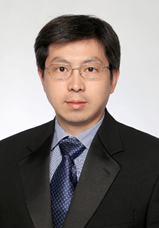
Yu Rao
School of Medicine, Tsinghua University, Beijing, China
Yu Rao obtained his Ph.D. degree from University of Georgia. He then carried out post doctorial research work at Sloan-kettering Cancer Center. He joined School of Medicine in Tsinghua University in January of 2010. His research interests are focused on developing novel small molecule-based therapeutics for drug-resistant cancer and infectious disease treatments. His laboratory utilizes the expertise in the fields of medicinal chemistry, chemical biology, and synthetic chemistry to develop lead compounds for important drug targets and explore new potential therapeutic targets. In recent years, his laboratory is mainly working on protein degradation/PROTAC method development and application in related disease treatments.
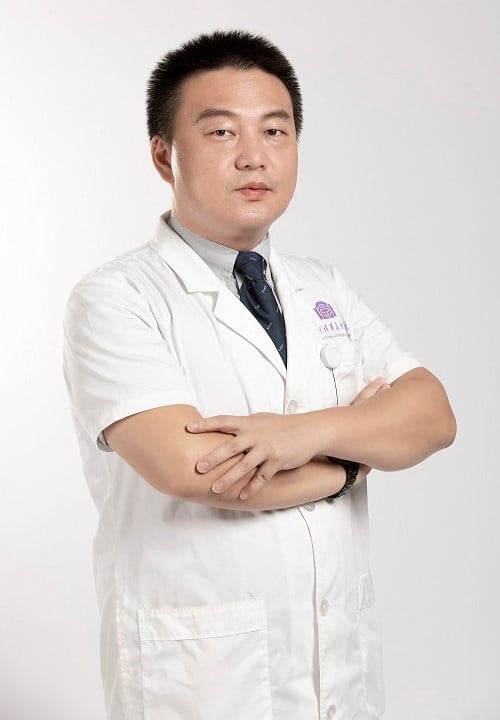
Zhuo Yu
Department of Oncology, Beijing Tsinghua Changgung Hospital, Beijing, China ![]()
Zhuo Yu received his M.D. degree from Pekin Union Medical Collegeis. He is the Attending Physician and Associate Professor of Department of Oncology, Beijing Tsinghua Changgung Hospital, School of Clinical Medical, Tsinghua University, Beijing. He’s also the member of the Hepato-Bilio-Pancreatology Professional Committee of Beijing Anti-Cancer Association, standing committee member of the Lung Cancer Committee and member of the Palliative Medicine Committee of Beijing Association of Oncology, member of the Chemotherapeutical-Quality-Control Committee of Beijing Cancer Quality Control and Improvement Center, Editorial board member of Electronic Journal of Liver Tumor. He engaged in digestive tract malignancies including Hepato-Bilio-Pancreatic cancers, esophageal and gastric cancers, colorectal malignant tumors, et al. His main research areas are related to cancer prevention and clinical treatment, as well as side effects alleviation, nutritional support, and standardized pain management.
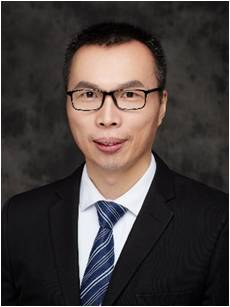
Jianyang Zeng
School of Engineering, School of Life Sciences, Westlake University, Hangzhou, China
Jianyang (Michael) Zeng is a full professor in the School of Engineering, and an adjunct faculty member in the School of Life Sciences, Westlake University. He was a postdoctoral associate in the Department of Computer Science at Duke University and the Duke University School of Medicine in 2011-2012. He received his PhD in Computer Science from Duke University in 2011, advised by Prof. Bruce Donald (ACM and IEEE fellows). He received his MS and BS degrees from Zhejiang University in 2002 and 1999, respectively.
The research interests of the Zeng lab mainly focus on computational biology, machine learning and big data analysis, particularly the intersection between artificial intelligence/machine learning and life sciences. He has published over 80 papers in the prominent journals and conferences of computational biology and related fields, including top conferences ISMB and RECOMB, and prestigious journals, such as Nature (as a coauthor), Nature Machine Intelligence, Nature Communications, Nature Computational Science, Cell Systems, PNAS, Nucleic Acids Research, PLOS Computational Biology and Bioinformatics. He has been awarded "The XPLORER PRIZE" in 2023, "The National Science Fund for Distinguished Young Scholars in China" in 2021, "Wu Wenjun AI Science and Technology Award (Natural Science track, Third Prize)" in 2019, and "Top-10 Chinese Bioinformatics Breakthroughs" by Journal of Genomics, Proteomics and Bioinformatics in 2018 and 2019. He has been invited as a program committee (PC) member for prestigious international conferences in computational biology, including ISMB and RECOMB. He is an associate editor of IEEE/ACM Transactions on Computational Biology and Bioinformatics, and an advisory board member of Cell Systems.
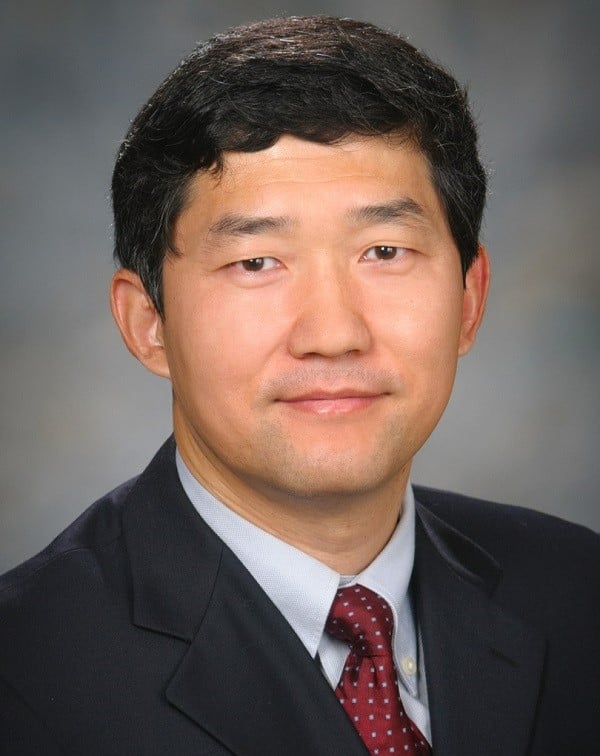
Jianjun Zhang
Department of Thoracic/Head and Neck Medical Oncology, The University of Texas, MD Anderson Cancer Center, Houston, USA
Jianjun Zhang is an Associate Professor in the Dept. Thoracic/Head and Neck Medical Oncology; Dept. Genomic Medicine, The University of Texas, MD Anderson Cancer Center. His research interests include cancer genomics, cancer immunology, cancer evolution, immunotherapy etc. Prof. Zhang has published over 100 peer-reviewed articles in Naturem, Sciencem, Lancent Oncologym, JCOm, Annals of Oncologym, JTOm, Nature Communications etc. in the past 5 years.
Section Editors

Meng Chen
National Cancer Center/Cancer Hospital Chinese Academy of Medical Science and Peking Union Medical College, Beijing, China ![]()
Meng Chen is the Deputy Director, National Cancer Data Center, National Cancer Center / Cancer Hospital Chinese Academy of Medical Science and Peking Union Medical College. She received her Ph.D. degrees from the University of Texas Health Science Center at Houston and MD Anderson Cancer Center. She has been engaged in identifying biomarkers for cancer risk prediction, diagnosis, and prognosis, as well as real world study using molecular epidemiology and big data tools.
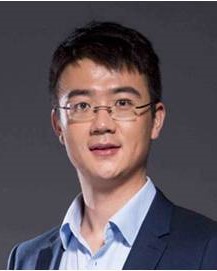
Mengchun Gong
Institute of Health Management, Southern Medical University, Guangzhou, China ![]()
Mengchun Gong graduated from Peking Union Medical College with an M.D. degree, and entered Peking Union Medical College Hospital in 2014, after which time he worked in University of California, San Francisco as a visiting scholar. He joined the area of applied medical informatics since 2015 and now works as the Distinguished Professor in the Institute of Health Management, Southern Medical University, China. He is actively engaged with international academic societies and holds the positions including the Diagnostic Science Committee member of IRDiRC , Director of the Management Board of SNOMED International, and the member of the executive committee of the Chinese Association of Bioinformatics. He took charge of the National Rare Diseases Registry System of China as the executive director from 2016 to 2019 and has been a pioneer in rare disease research and patient advocacy in China. His research focus covers medical terminology/ontology, rare diseases research and health technology assessment (HTA) for orphan medicinal products.
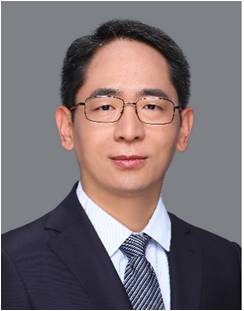
Yingjie Tian
School of Economics and Management, University of Chinese Academy of Sciences; Research Center of Fictitious Economy and Data Science, Chinese Academy of Sciences, Beijing, China ![]()
Yingjie Tian has published 5 Chinese and English Monographs and more than 50 papers in international academic journals and international conferences in recent 5 years. Academic achievements have been widely cited and evaluated by well-known scholars at home and abroad. He has participated in more than 10 general projects, key projects, innovation groups, major international cooperation, major special projects of a certain ministry, and knowledge innovation projects of the Chinese Academy of Sciences.
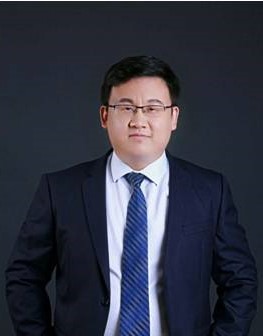
Xuntao Yin
Department of Radiology, Guangzhou Women and Children's Medical Center, Guangzhou, China ![]()
Xuntao Yin received the Ph.D. degree at Shandong University and was co-trained at McGill University in Canada in 2012. He later went to the United States as a visiting scholar at the Department of Radiology in Mayo Clinic in 2016. In the past 5 years, He has published more than 50 SCI papers. He has participated in several national or provincial research projects with a total 4 million dollars funds. He has written 7 monographs (two as chief editor) and obtained 4 software copyrights.
Editorial Board Members
![]() Romualdo Barroso-Sousa, M.D., Ph.D., Department of Oncology, Brasilia Hospital, Rede Américas, Brasília, Brazil
Romualdo Barroso-Sousa, M.D., Ph.D., Department of Oncology, Brasilia Hospital, Rede Américas, Brasília, Brazil
![]() Adriana Beltran, Ph.D., School of Medicine, University of North Carolina, Chapel Hill, USA [Section: Basic Cancer Research]
Adriana Beltran, Ph.D., School of Medicine, University of North Carolina, Chapel Hill, USA [Section: Basic Cancer Research]
![]() Raghvendra Ashok Bohara, PhD, CÚRAM, SFI Research Centre for Medical Devices, National University of Ireland, Galway, Ireland [Section: Oncological Pharmacology]
Raghvendra Ashok Bohara, PhD, CÚRAM, SFI Research Centre for Medical Devices, National University of Ireland, Galway, Ireland [Section: Oncological Pharmacology]
![]() Jing Cao, Ph.D., Department of Pathology, University of Texas Southwestern Medical Center, Frisco, USA [Section: Clinical Cancer Research]
Jing Cao, Ph.D., Department of Pathology, University of Texas Southwestern Medical Center, Frisco, USA [Section: Clinical Cancer Research]
![]() Yang Chen, Ph.D., School of Basic Medicine, Chinese Academy of Medical Sciences & Peking Union Medical College , Beijing, China [Section: Cancer Genomics]
Yang Chen, Ph.D., School of Basic Medicine, Chinese Academy of Medical Sciences & Peking Union Medical College , Beijing, China [Section: Cancer Genomics]
![]() Chao Cheng, Ph.D., Epidemiology and Population Science, Baylor College of Medicine, Houston, USA [Section: Cancer Genomics]
Chao Cheng, Ph.D., Epidemiology and Population Science, Baylor College of Medicine, Houston, USA [Section: Cancer Genomics]
![]() Yun Shin Chun, M.D., Division of Surgery, The University of Texas MD Anderson Cancer Center, Houston, USA [Section: Clinical Cancer Research]
Yun Shin Chun, M.D., Division of Surgery, The University of Texas MD Anderson Cancer Center, Houston, USA [Section: Clinical Cancer Research]
![]() Youping Deng, Ph.D., Department of Quantitative Health Sciences, John A. Burns School of Medicine (JABSOM), University of Hawaii Cancer Center, Honolulu, USA [Section: Cancer Informatics]
Youping Deng, Ph.D., Department of Quantitative Health Sciences, John A. Burns School of Medicine (JABSOM), University of Hawaii Cancer Center, Honolulu, USA [Section: Cancer Informatics]
![]() Yali Dou, Ph.D., Norris Comprehensive Cancer Center, University of Southern California, Los Angeles, USA [Section: Basic Cancer Research]
Yali Dou, Ph.D., Norris Comprehensive Cancer Center, University of Southern California, Los Angeles, USA [Section: Basic Cancer Research]
![]() Guobin Fu, M.D., Shandong Provincial Hospital, Jinan, China [Section: Clinical Cancer Research]
Guobin Fu, M.D., Shandong Provincial Hospital, Jinan, China [Section: Clinical Cancer Research]
![]() Jian Gu, Ph.D., Department of Epidemiology, The University of Texas MD Anderson Cancer Center, Houston, USA [Section: Basic Cancer Research]
Jian Gu, Ph.D., Department of Epidemiology, The University of Texas MD Anderson Cancer Center, Houston, USA [Section: Basic Cancer Research]
![]() Tianyong Hao, Ph.D., School of Computer Science, South China Normal University, Guangzhou, China [Section: Artificial Intelligence Application]
Tianyong Hao, Ph.D., School of Computer Science, South China Normal University, Guangzhou, China [Section: Artificial Intelligence Application]
![]() Cara Haymaker, Ph.D., Translational Molecular Pathology, University of Texas MD Anderson Cancer Center, Houston, USA
Cara Haymaker, Ph.D., Translational Molecular Pathology, University of Texas MD Anderson Cancer Center, Houston, USA
![]() Fang Hua, Ph.D., Institute of Materia Medica, Chinese Academy of Medicine Sciences & Peking Union Medical College, Beijing, China [Section: Oncological Pharmacology]
Fang Hua, Ph.D., Institute of Materia Medica, Chinese Academy of Medicine Sciences & Peking Union Medical College, Beijing, China [Section: Oncological Pharmacology]
![]() Zichun Hua, Ph.D., Nanjing University, China Pharmaceutical University, Nanjing, China [Section: Basic Cancer Research]
Zichun Hua, Ph.D., Nanjing University, China Pharmaceutical University, Nanjing, China [Section: Basic Cancer Research]
![]() Hatim Husain, M.D., Department of Medicine, Johns Hopkins University, Baltimore, USA [Section: Clinical Cancer Research]
Hatim Husain, M.D., Department of Medicine, Johns Hopkins University, Baltimore, USA [Section: Clinical Cancer Research]
![]() Meng Ji, Ph.D., School of Languages and Cultures, The University of Sydney, Sydney, Australia [Section: Artificial Intelligence Application]
Meng Ji, Ph.D., School of Languages and Cultures, The University of Sydney, Sydney, Australia [Section: Artificial Intelligence Application]
![]() Zisis Kozlakidis, Ph.D., International Agency for Research on Cancer, World Health Organisation, Hertfordshire, United Kingdom [Section: Oncologic Imaging]
Zisis Kozlakidis, Ph.D., International Agency for Research on Cancer, World Health Organisation, Hertfordshire, United Kingdom [Section: Oncologic Imaging]
![]() Jianping Li, M.D., Division of Hematology/Oncology, University of Florida, Gainesville, USA [Section: Basic Cancer Research]
Jianping Li, M.D., Division of Hematology/Oncology, University of Florida, Gainesville, USA [Section: Basic Cancer Research]
![]() Ke Li, Ph.D., Institute of Medicinal Biotechnology, Chinese Academy of Medical Sciences and Peking Union Medical College, Beijing, China [Section: Oncological Pharmacology]
Ke Li, Ph.D., Institute of Medicinal Biotechnology, Chinese Academy of Medical Sciences and Peking Union Medical College, Beijing, China [Section: Oncological Pharmacology]
![]() Han Liang, Ph.D., Department of Bioinformatics and Computational Biology, The University of Texas MD Anderson Cancer Center, Houston, USA [Section: Cancer Informatics]
Han Liang, Ph.D., Department of Bioinformatics and Computational Biology, The University of Texas MD Anderson Cancer Center, Houston, USA [Section: Cancer Informatics]
![]() Jing Liang, M.D., Department of Oncology, The First Afffliated Hospital of Shandong First Medical University & Shandong Provincial Qianfoshan Hospital, Jinan, China [Section: Clinical Cancer Research]
Jing Liang, M.D., Department of Oncology, The First Afffliated Hospital of Shandong First Medical University & Shandong Provincial Qianfoshan Hospital, Jinan, China [Section: Clinical Cancer Research]
![]() Qing Liu, Ph.D., Department of Biological Sciences, Clemson University, Clemson, USA [Section:Basic Cancer Research]
Qing Liu, Ph.D., Department of Biological Sciences, Clemson University, Clemson, USA [Section:Basic Cancer Research]
![]() Tong Liu, M.D., Ph.D., Tianjin Institute of Cardiology, Second Hospital of Tianjin Medical University, Tianjin, China [Section: CardiOncology]
Tong Liu, M.D., Ph.D., Tianjin Institute of Cardiology, Second Hospital of Tianjin Medical University, Tianjin, China [Section: CardiOncology]
![]() Ziwen Liu, M.D., Ph.D., Peking Union Medical College Hospital, Chinese Academy of Medical Sciences & Peking Union Medical College, Beijing, China [Section: Clinical Cancer Research]
Ziwen Liu, M.D., Ph.D., Peking Union Medical College Hospital, Chinese Academy of Medical Sciences & Peking Union Medical College, Beijing, China [Section: Clinical Cancer Research]
![]() Qingxin Mu, Ph.D., Department of Pharmaceutics, University of Washington, Seattle, USA [Section: Oncological Pharmacology]
Qingxin Mu, Ph.D., Department of Pharmaceutics, University of Washington, Seattle, USA [Section: Oncological Pharmacology]
![]() Atsuo Ogura, Ph.D, D.V.M., RIKEN Bioresource Research Center, RIKEN, Tsukuba, Japan [Section: Basic Cancer Research]
Atsuo Ogura, Ph.D, D.V.M., RIKEN Bioresource Research Center, RIKEN, Tsukuba, Japan [Section: Basic Cancer Research]
![]() Bo Pang, Ph.D., Department of Clinical Laboratory, Guang'Anmen Hospital China Academy Of Chinese Medical Sciences, Beijing, China [Section: Basic Cancer Research]
Bo Pang, Ph.D., Department of Clinical Laboratory, Guang'Anmen Hospital China Academy Of Chinese Medical Sciences, Beijing, China [Section: Basic Cancer Research]
![]() Xiaobo Qu, Ph.D., Department of Electronic Science, Xiamen University, Xiamen, China [Section: Oncologic Imaging]
Xiaobo Qu, Ph.D., Department of Electronic Science, Xiamen University, Xiamen, China [Section: Oncologic Imaging]
![]() Alexandre Reuben, Ph.D., Division of Cancer Medicine, The University of Texas MD Anderson Cancer Center, Houston, USA [Section: Clinical Cancer Research]
Alexandre Reuben, Ph.D., Division of Cancer Medicine, The University of Texas MD Anderson Cancer Center, Houston, USA [Section: Clinical Cancer Research]
![]() Gautam Sethi, Ph.D., Yong Loo Lin School of Medicine, National University of Singapore, Singapore, Singapore [Section: Oncological Pharmacology]
Gautam Sethi, Ph.D., Yong Loo Lin School of Medicine, National University of Singapore, Singapore, Singapore [Section: Oncological Pharmacology]
![]() Lichao Sun, M.D., National Cancer Center/Cancer Hospital, Chinese Academy of Medical Sciences, Peking Union Medical College, Beijing, China [Section: Basic Cancer Research]
Lichao Sun, M.D., National Cancer Center/Cancer Hospital, Chinese Academy of Medical Sciences, Peking Union Medical College, Beijing, China [Section: Basic Cancer Research]
![]() Tong Sun, M.D., Ph.D., Yale School of Medicine, Yale-New Haven Health System, New Haven, USA [Section: Clinical Cancer Research]
Tong Sun, M.D., Ph.D., Yale School of Medicine, Yale-New Haven Health System, New Haven, USA [Section: Clinical Cancer Research]
![]() Koichi Takahashi, M.D., Ph.D., Division of Cancer Medicine, The University of Texas MD Anderson Cancer Center, Houston, USA
Koichi Takahashi, M.D., Ph.D., Division of Cancer Medicine, The University of Texas MD Anderson Cancer Center, Houston, USA
![]() Guihua Wang, M.D., Tongji Hospital, Tongji Medical College, Huazhong University of Science and Technology, Wuhan, China [Section: Basic Cancer Research]
Guihua Wang, M.D., Tongji Hospital, Tongji Medical College, Huazhong University of Science and Technology, Wuhan, China [Section: Basic Cancer Research]
![]() Qianben Wang, Ph.D., Department of Pathology, Duke University School of Medicine, Durham, USA [Section: Basic Cancer Research]
Qianben Wang, Ph.D., Department of Pathology, Duke University School of Medicine, Durham, USA [Section: Basic Cancer Research]
![]() Yong Wang, Ph.D., Department of Ultrasound, National Cancer Center, National Clinical Research Center for Cancer, Cancer Hospital, Chinese Academy of Medical Sciences, Beijing, China [Section: Oncologic Imaging]
Yong Wang, Ph.D., Department of Ultrasound, National Cancer Center, National Clinical Research Center for Cancer, Cancer Hospital, Chinese Academy of Medical Sciences, Beijing, China [Section: Oncologic Imaging]
![]() Zibing Wang, M.D., Ph.D., Department of Immunotherapy, Henan Cancer Hospital, Zhengzhou, China [Section: Clinical Cancer Research]
Zibing Wang, M.D., Ph.D., Department of Immunotherapy, Henan Cancer Hospital, Zhengzhou, China [Section: Clinical Cancer Research]
![]() Qingyi Wei, M.D., PhD., Duke Cancer Institute, Duke University Medical Center, Durham, NC, USA
Qingyi Wei, M.D., PhD., Duke Cancer Institute, Duke University Medical Center, Durham, NC, USA
![]() Yuan Wei, Ph.D., School of Pharmacy, Jiangsu University, Zhenjiang, China [Section: Oncological Pharmacology]
Yuan Wei, Ph.D., School of Pharmacy, Jiangsu University, Zhenjiang, China [Section: Oncological Pharmacology]
![]() Xuefeng Xia, M.D., Ph.D., GenePlus Institute, Beijing, China [Section: Cancer Genomics]
Xuefeng Xia, M.D., Ph.D., GenePlus Institute, Beijing, China [Section: Cancer Genomics]
![]() Fei Xiao, Ph.D., The Key Laboratory of Geriatrics, Beijing Hospital, Beijing, China [Section: Clinical Cancer Research]
Fei Xiao, Ph.D., The Key Laboratory of Geriatrics, Beijing Hospital, Beijing, China [Section: Clinical Cancer Research]
![]() Jia Xu, Ph.D., Department of Genetics, O’Neal Comprehensive Cancer Center; Heersink School of Medicine, University of Alabama at Birmingham, Birmingham, USA [Section: Clinical Cancer Research]
Jia Xu, Ph.D., Department of Genetics, O’Neal Comprehensive Cancer Center; Heersink School of Medicine, University of Alabama at Birmingham, Birmingham, USA [Section: Clinical Cancer Research]
![]() Xiaomei Yao, M.D., M.S., Department of Health Research Methods, Evidence and Impact, McMaster University; Ontario Health (Cancer Care Ontario), Hamilton, Canada
Xiaomei Yao, M.D., M.S., Department of Health Research Methods, Evidence and Impact, McMaster University; Ontario Health (Cancer Care Ontario), Hamilton, Canada
![]() Xin Yi, Ph.D., Houston Methodist Hospital/Weill Cornell Medical College, Houston, USA [Section: Clinical Cancer Research]
Xin Yi, Ph.D., Houston Methodist Hospital/Weill Cornell Medical College, Houston, USA [Section: Clinical Cancer Research]
![]() James You, Ph.D., Department of Hematopathology, The University of Texas MD Anderson Cancer Center, Houston, USA [Section: Basic Cancer Research]
James You, Ph.D., Department of Hematopathology, The University of Texas MD Anderson Cancer Center, Houston, USA [Section: Basic Cancer Research]
![]() Jiuda Zhao, M.D., Breast Disease Diagnosis and Treatment Center of Affliated Hospital of Qinghai University & Affliated Cancer Hospital of Qinghai University, Xining, China [Section: Clinical Cancer Research]
Jiuda Zhao, M.D., Breast Disease Diagnosis and Treatment Center of Affliated Hospital of Qinghai University & Affliated Cancer Hospital of Qinghai University, Xining, China [Section: Clinical Cancer Research]
![]() Guangxin Zhou, M.D., Ph.D., Jinling Hospital, Medical School of Nanjing University, Nanjing, China [Section: Clinical Cancer Research]
Guangxin Zhou, M.D., Ph.D., Jinling Hospital, Medical School of Nanjing University, Nanjing, China [Section: Clinical Cancer Research]
![]() Liehuang Zhu, Ph.D., School of Cyberspace Security, Beijing Institute of Technology, Beijing, China [Section: Artificial Intelligence Application]
Liehuang Zhu, Ph.D., School of Cyberspace Security, Beijing Institute of Technology, Beijing, China [Section: Artificial Intelligence Application]
![]() Zhenjian Zhuo, Ph.D., Peking University Shenzhen Graduate School, Shenzhen, China [Section: Basic Cancer Research]
Zhenjian Zhuo, Ph.D., Peking University Shenzhen Graduate School, Shenzhen, China [Section: Basic Cancer Research]
![]() Dapeng Zhang, Ph.D., College of Arts and Sciences, Saint Louis University, St. Louis, USA [Section: Cancer Informatics]
Dapeng Zhang, Ph.D., College of Arts and Sciences, Saint Louis University, St. Louis, USA [Section: Cancer Informatics]
Statistical Editors
![]() Davaalkham Dambadarjaa, M.D., Ph.D., School of Public Health, Mongolian National University of Medical Sciences, Ulaanbaatar, Mongolia
Davaalkham Dambadarjaa, M.D., Ph.D., School of Public Health, Mongolian National University of Medical Sciences, Ulaanbaatar, Mongolia
![]() Yingjian He, Ph.D., Breast Center, Peking University Cancer Hospital, Beijing, China
Yingjian He, Ph.D., Breast Center, Peking University Cancer Hospital, Beijing, China
![]() Hui Zhang, Ph.D., Department of Preventive Medicine, Northwestern University Feinberg School of Medicine, Chicago, USA
Hui Zhang, Ph.D., Department of Preventive Medicine, Northwestern University Feinberg School of Medicine, Chicago, USA
![]() Yue Zheng, Ph.D., Department of Data Sciences, Dana-Farber Cancer Institute, Houston, USA
Yue Zheng, Ph.D., Department of Data Sciences, Dana-Farber Cancer Institute, Houston, USA
Editorial Office Director
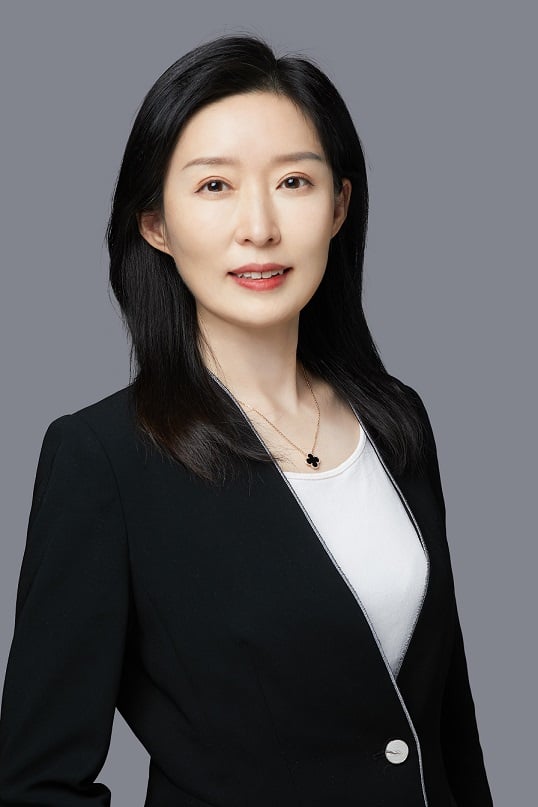
Yu Sun
Tsinghua University Press, Beijing, China
Yu Sun, Ph.D., senior editor, is the Associate General Editor of Tsinghua University Press. She is also the adjunct researcher of Key Laboratory of Big Data Mining and Knowledge Management, Chinese Academy of Sciences and the Vice President of Ecological Health Research Institute, Shandong University. She was selected as one of the Leading Talents in China's Press and Publishing Industry.
Dr. Sun received doctorates in both medicine and management. She has more than 20 years experience in medical publishing. Her research focuses on medical academic evolution and established cited database in medical monograph for the first time. She has published in medical journals including The Lancet Public Health. She is also the editorial office director of iLIVER, Infectious Medicinem, Health Care Science and iRadiology.
Managing Editor
![]() Shujiao Yang, Tsinghua University Press, Beijing, China
Shujiao Yang, Tsinghua University Press, Beijing, China
Publisher
Janetta Li, Publishing Development, Health Sciences, Beijing, China




